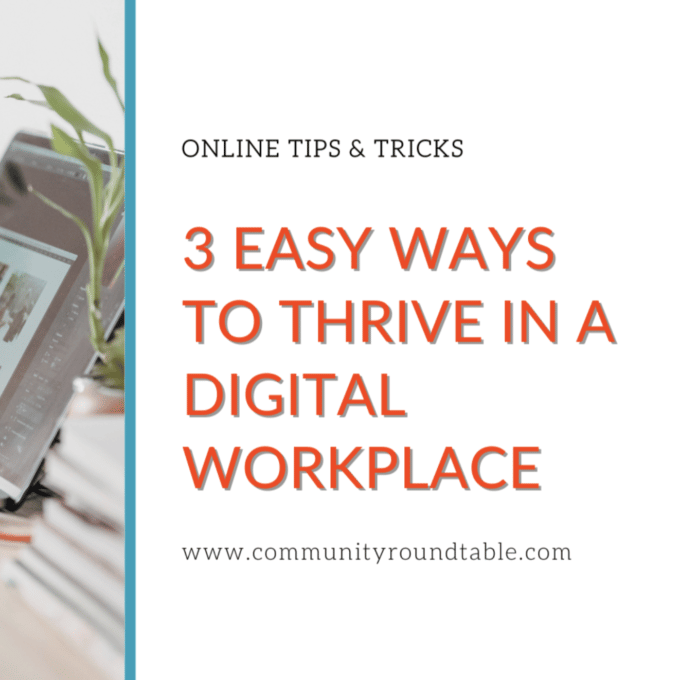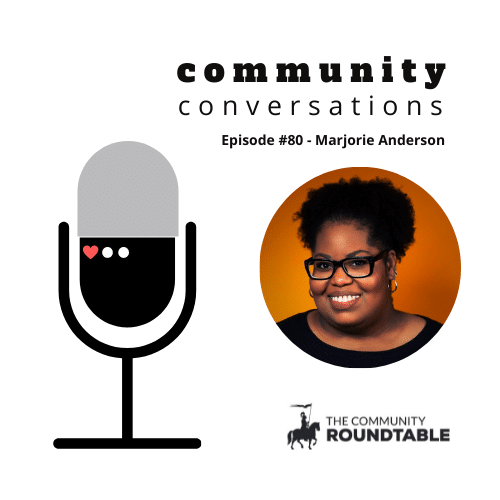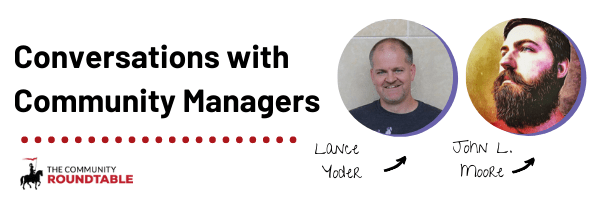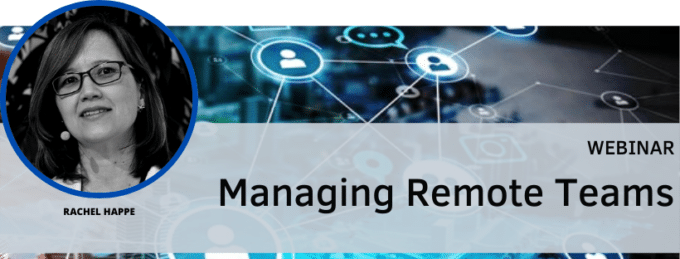Good news! Working in a digital workplace has become more common than ever during the COVID-19 pandemic.
Bad news. There are still some who struggle to stay connected and engaged with their team when they’re not in a single location. (Extroverts, we know your struggle’s especially real.)
Great news! We’re very familiar with working remotely at The CR — 13 years and counting — so we’re sharing three of the best ways you can not only survive but thrive in a remote team.

Establish open communications
In the office environment, it’s easy to stay connected with others. After all, you run into them frequently throughout the day — break room, coffee runs, restroom, etc. And by their very nature cube fields allow you to have a general understanding of who is working on what. You simply need to use your ears and pay attention to your surroundings.
In a digital workplace, however, it can be much harder to feel like you’re part of something due to physical separation. To avoid feeling isolated, establishing an open channel of communication for teammates to check-in with each other is mission critical.
Our preferred method is Slack (with separate channels based on areas of focus), but there are a number of options available — yes, even something as simple as a Google Doc. The important thing is to find one and use it in the way that makes the most sense for your organization.
Beyond the means of communication, another way to support an open digital work environment is by having touch base meetings frequently. But instead of focusing on project work, use the time to truly discuss how you’re feeling. Not in a “big brother is watching” way, but to acknowledge things may be difficult right now — mentally, physically, and emotionally — and it’s okay to feel these feelings. We’re in a pandemic. Things are weird, and they’re going to be that way for a while. By acknowledging the elephant in the room in discussions, you’re allowing your teammates to use the communication channels in a more vulnerable, authentic way, which can lead to an even more connected team than before.
Speaking of being more connected…
Working together, apart
There’s a secret we want to let you in on: Online collaboration is our superpower.
Yes, we’ve been doing it for a while, but it can be a superpower your team develops, too!
Remember the Google Doc mentioned earlier? This is another place it can come into play. By providing everyone on a project access to the same working document (Word Docs with comments are another method if you don’t have a content creation platform in place), teammates can collaborate without missing a beat. Note: Be sure you have a strong process in place to avoid any potential project flow confusion.
In these documents, feedback and comments should be seen as the rule NOT an exception, and they should always be provided in a neutral or kind way. This is not the time to be catty or judgey. Remember: Much like the Internet, the written word lasts forever.
Beyond that, consider putting routines — daily, weekly, monthly, etc. — in place for your team to utilize so everyone can stay on track and/or connected. Some of our favorites include:
- PPP (Progress, Plans, Problems) meetings. This is an opportunity to share high-level status updates on a regular basis. Each member of the team fills out a simple spreadsheet with what they’re currently working on (progress), what’s on the horizon (plans) and what’s preventing them from accomplishing things (problems). By sharing with everyone, other teammates have the opportunity to weigh in and possibly help — especially with the problems category. We have ours every other week, but be sure to use the cadence that’s right for your group.
- Working out loud. Still not a “big brother” tactic. Working out loud is sharing in your communications channels a general overview of what you’re focusing on at the moment. These shouldn’t be detailed, but provide more of a status update so your teammates have a general idea of where your focus is — especially if they need you for something. Admittedly, this tactic can feel strange and leave you feeling highly vulnerable (we’ll admit that announcing what you’re working on takes some getting used to), but once you get the hang of it, it becomes second nature.
- Question of the day. This one is just for fun, and probably the easiest to implement, but posting a thought-provoking question (or silly, no rules!) in the general communication channel for everyone to answer is a great way to connect with one another beyond work projects. The more interesting the question, the more interaction!
These tactics are just a few examples of ways to connect as a team when you’re working in a digital workplace, but beyond that they’re a fantastic way to ensure we remember to view our fellow online coworkers as real, living, breathing people, and not just names on an email.
Expect the unexpected
A few years ago, Professor Robert Kelly went viral for his children sneaking into his office during a live interview on BBC, and the chaos that ensued as a result. At the time it was still unusual to have a video meeting (interview, meeting, close enough) interrupted by children. Now though, when you’re working remotely you need to learn to expect the unexpected to happen:
- Children pop in during meetings with questions.
- Pets inspect the computer at less than ideal times.
- Wi-Fi goes out.
- The doorbell rings.
The list goes on. And so does life. Why? Because we’re all humans, and things can go awry at times.
That’s one of the truly beautiful things about virtual work (and its interruptions): it humanizes us.
If you find your team making the transition from an in-person office to a digital workplace, don’t stress. While the swap can take some getting used to, by following tips like these you may find your team can “be together” and in a more productive way than ever before.


![thumbnail image 1 of blog post titled
[Ignite Recap] Cerner finds sweet spot with Microsoft 365 Groups, SharePoint, Teams and Yammer](https://techcommunity.microsoft.com/t5/image/serverpage/image-id/157703iA45F1744556E5694/image-size/large?v=1.0&px=999)

